All-electric car market share on the rise worldwide
The latest report on electric vehicle sales and innovation by the Center of Automotive Management (CAM) compares e-mobility markets worldwide. So far, the positive trend continues throughout 2018, with PEVs now having a global marketshare of 4.6%, almost double from what it was in 2017. Two countries are the main drivers behind this development, with one or two more surprising or say, impressive forces pulling the lead.
China retains its leading position, unsurprisingly. Registrations of new energy vehicles in the country have almost crossed the one million unit mark and currently stand at 980,000 plug-in cars. Most of them are battery-electric vehicles, with only 23% of sales falling to plug-in hybrids. Moreover, China’s protective policies show their full effect and result in 95% of all electric cars sold in China being made locally.
Also the U.S. market is exhibiting strong growth. Here the number of electric cars grew by 84% to 356,000 units. Driving this development most prominently is Tesla and more precisely the Model 3 that accounts for 37 percent of all EV registrations in the United States. When including the Model S and X in this statistic for the first 11 months of this year, Tesla effectively rules 50 percent of the market (159,000 units sold), according to CAM. Taking the nationwide view, the PEV share in the USA doubled and now stands at 2.1% (up from 1.1) with an impressive 2/3 of the sales being all-electric cars.
Last but not least, CAM collated the data on Europe, or say Norway rather. The tiny country defends its position as the world’s third largest market for plug-in vehicles. 73,000 units were sold throughout 2018. Most impressive is the market share however: 47.9 percent of all vehicles sold in Norway are now electric (up from 39.3% in 2017). About 63 percent of these PEVs are purely electric with the remaining 37% comprising of PHEVs.
In terms of growth rather than actual numbers, both the Netherlands and Sweden stand out. PEV sales in the latter now make for a market share of 8 percent. Electric car sales in the Netherlands have nearly tripled and 24,000 units sold translate to a 5.2% piece of the market. Also in the UK and France the numbers are looking positive with 59,000 and 45,000 having been sold respectively.
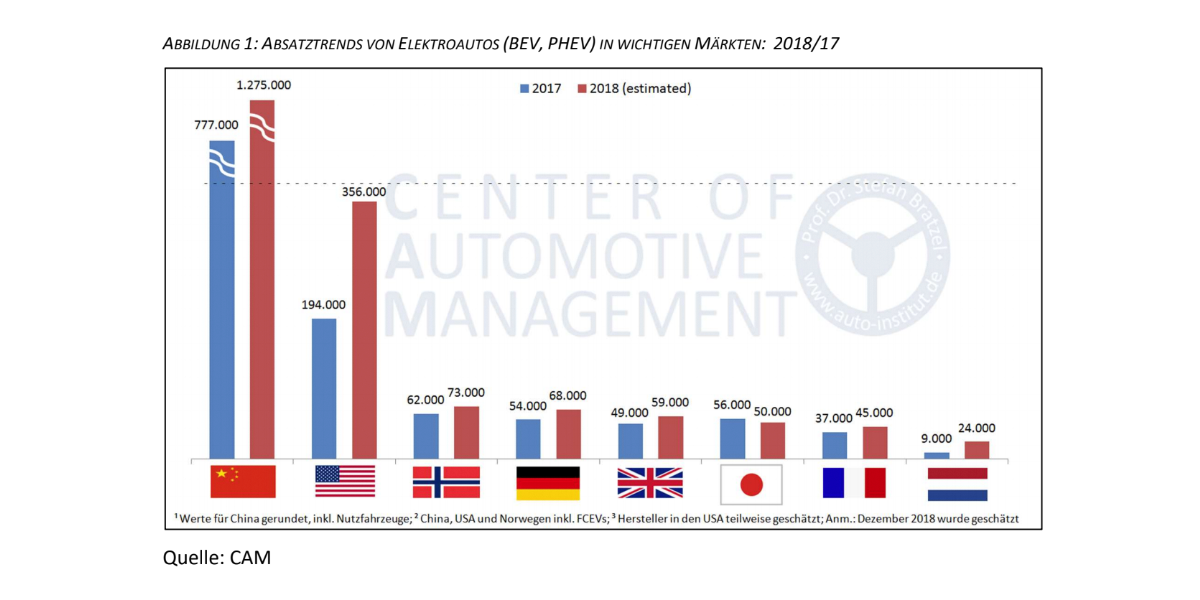
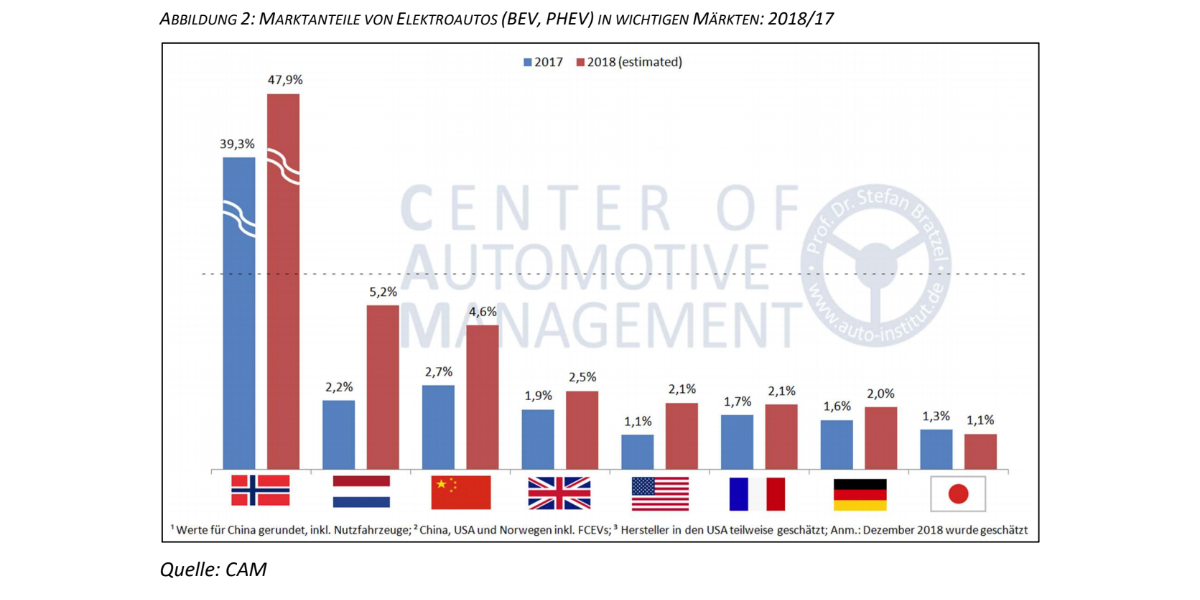
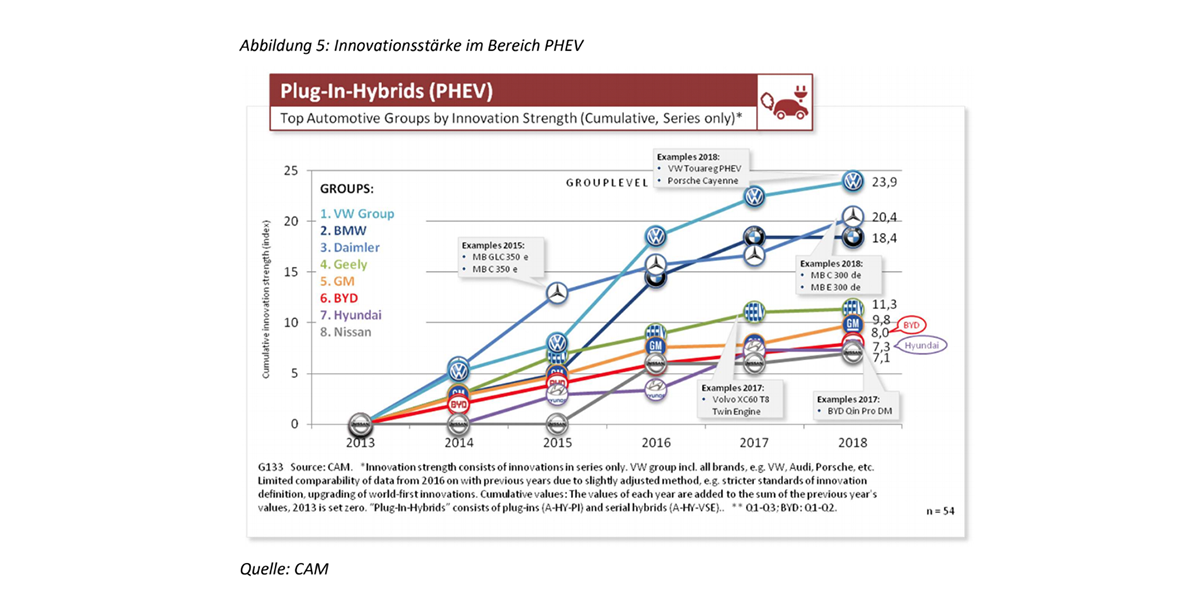
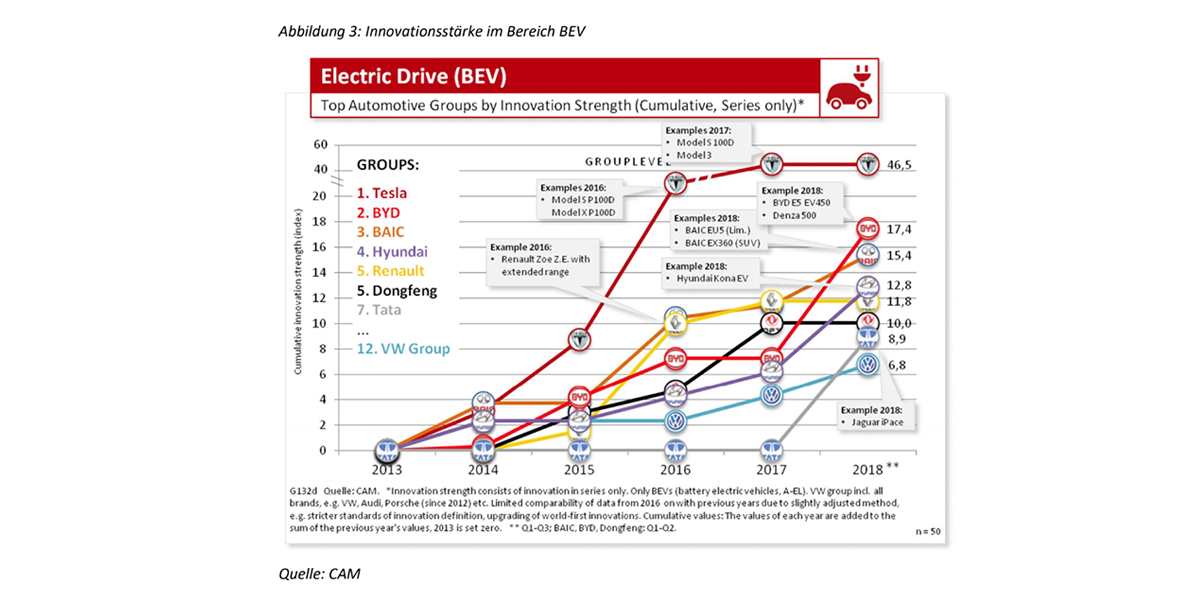
The global trend of increasing market share of largely all-electric cars, has led CAM chief Stefan Bratzel to estimate that by 2025, about 1/4 of all new registrations will be made of electric cars, although a conservative scenario estimates 12%.
However, the data suggests that particularly the regulatory environment is taking its toll, or reaps the benefits, depending on how you look at it. And with emission regulation about to tighten, not only in China, one is inclined to consider the optimistic scenario for electric car sales.
Innovation strength of electric carmakers
A few words on the innovative performance of carmakers worldwide with regards to plug-in vehicles. Here, Tesla is clearly in the lead when it comes to all-electric cars. Following suit are the Chinese heavyweights, BYD and BAIC, before Hyundai and Renault. CAM measures innovative strength using 159 series innovations and the MOBIL method, that takes into account range or pricing for example.
German carmakers only feature when looking at plug-in hybrid technology. Volkswagen leads this segment due to models such as the VW Touareg or Porsche Cayenne. Daimler is next up followed by BMW. All offer models at the upper end of the price spectrum and Geely and GM, both next on the list, follow a similar strategy.
All data presented here relies on the “Branchenstudie Elektromobilität” (Industry report) collated by CAM.
>> PI via email

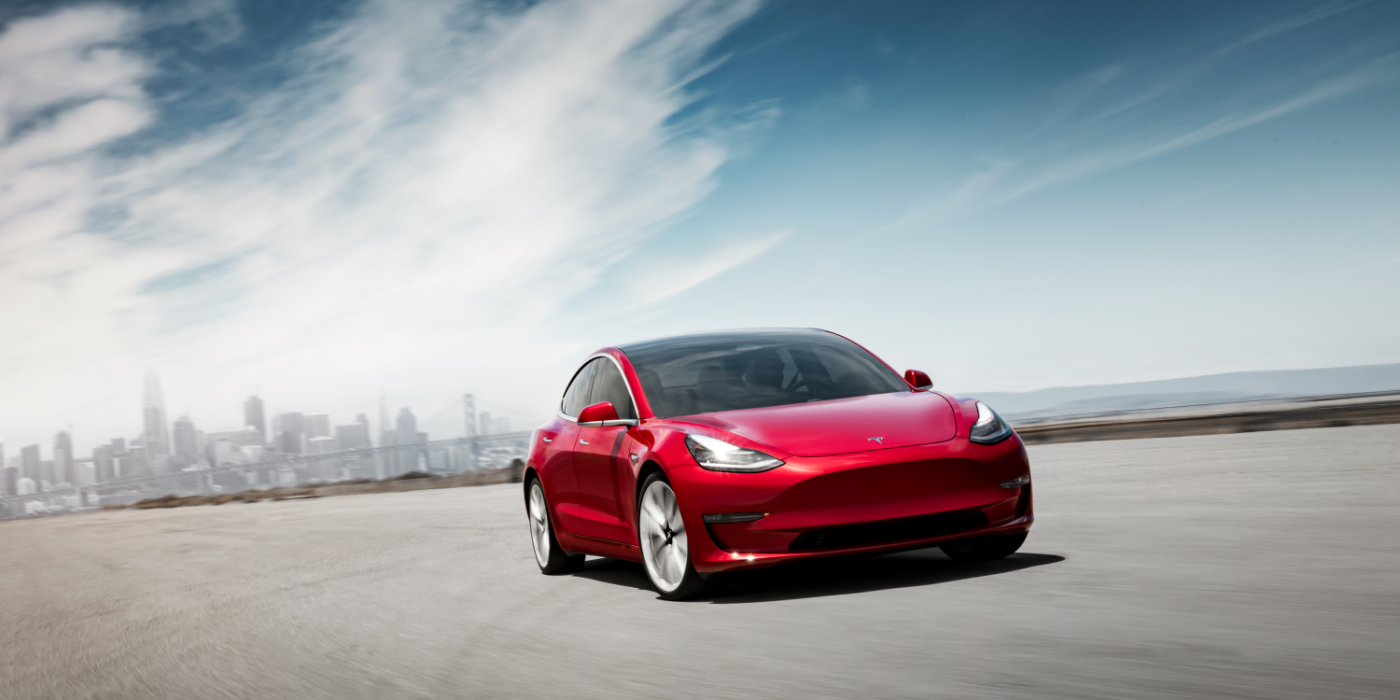
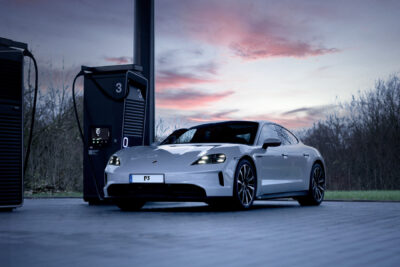

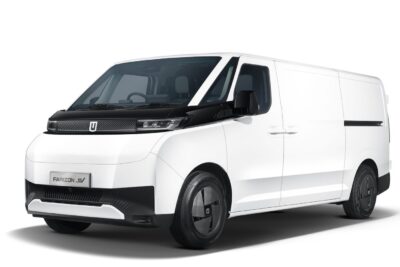
0 Comments